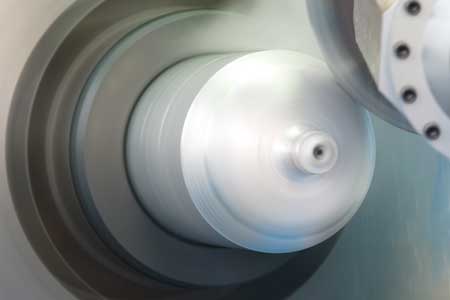
Leifeld AFC necking-in machine
Leifeld offers a new machine for the production of robust hydrogen tanks.
"Manufacturers of hydrogen-powered vehicles have clear requirements for hydrogen tanks: absolute safety, maximum filling volume and maximum flexibility in the design of the tank shape," said a company spokesperson. "All three requirements are met by hydrogen tanks manufactured with the necking-in machine AFC () from Leifeld Metal Spinning GmbH."
The machine forms the ends of the aluminum cylinders for hydrogen storage using a necking-in process. As hydrogen tanks underlie high operating pressures in their application, the entire neck area is optimized in its wall thickness profile during the forming process for long-term durability. In addition to the standard necking-in machine, Leifeld also offers a machine type that combines the necking-in and flow forming technology to form the entire pressure vessel body and the necks.
Customers can choose between two equipment options for preheating the material: gas burner or induction system. Once the pipe ends have been heated, the material is necked in. The process is completed by controlled loading and unloading as well as automated programming.
Hydrogen tanks operate under immense pressure. Scratches or other defects on the surface would be catastrophic. To prevent damage to the material, the R&D team, led by Benedikt Nillies, Technical Director at Leifeld, has come up with several solutions. For example, the heating of tube ends in the machine.
"Normally, the tube ends are heated by a gas oven or an induction system outside the machine," said Nillies. "However, during subsequent loading, the component cools down. We want to prevent this. With the AFC machine, the tube ends are either heated by an integrated heating device with a gas burner or electrical induction to processing temperature uniformly. We can precisely adjust the temperatures to the desired level. This avoids coarse grain formation and preserves the material's strength. Valid forming tests for aluminum tanks confirm the success of this innovation."
To keep the surface intact, Leifeld offers various spinning rollers, from simple necking-in rollers to actively driven forming rollers. The rollers, developed and manufactured by Leifeld, rotate upon contact with the part, preventing surface defects by avoiding material buildup on the roll. The support device was specially designed so that it can absorb the forming forces even with very thin wall thicknesses. The cylinder is held stably in a precise position, ensuring tight tolerances and surface accuracy even at high forming forces and forming speeds. The innovative support system can be used for parts up to 6 m in length.
There are no limits to the design of aluminum cylinders. Due to the flow-forming and necking-in technology, even stepped dimensions can be realized.
"Some of today's hydrogen tanks have to be integrated into existing vehicle architectures with limited installation space. For example, a tank could be stepped in such a way that it takes up as little space as possible and has the maximum filling volume. With this innovation, we aim to contribute to electromobility with hydrogen," said Nillies.
Hydrogen tanks are currently primarily used in cars, trucks and buses. However, Nillies also sees the possibility of using hydrogen tanks manufactured on LEIFELD machines to power rail vehicles and aircraft as feasible.
"We are continuously developing the process and have received initial inquiries from other industries," said Nillies. "Additionally, we are currently working on automating loading and unloading systems in order to adapt the machine even more efficiently to the customer's material flow."
For more information contact:
Leifeld USA Corp.
35135 Glendale St.
Livonia, MI 48150
734-591-0342
info@leifeldms.com
www.leifeldms.com